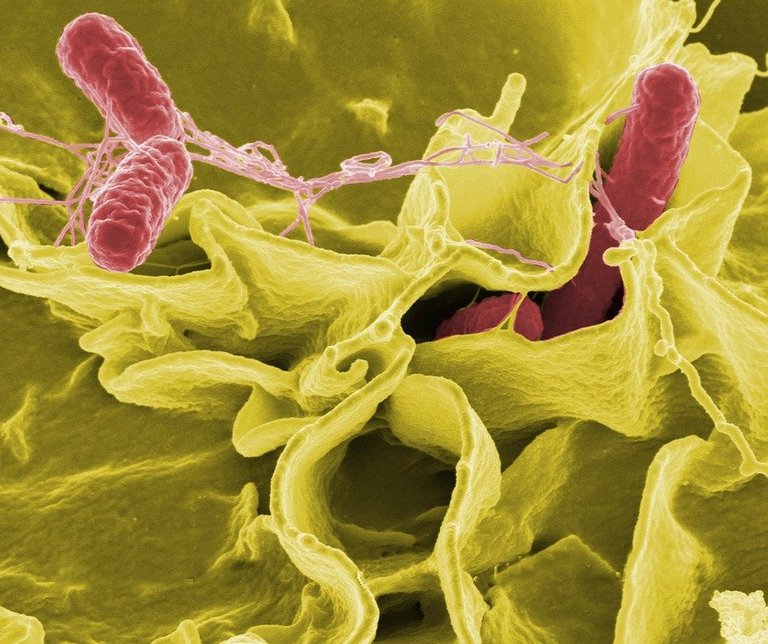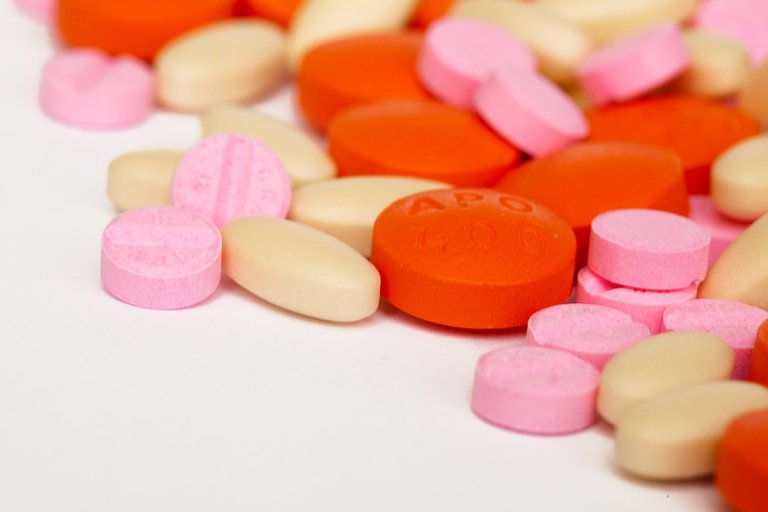Yesterday I talked about the microbiome that we have in the human body and the importance it has for the organic balance, because it fulfills multiple functions, including the production of vitamins, and very specifically I talked about the fact that the imbalance in the intestinal microbiome could lead to a series of diseases that I will talk about in the next post.
Therefore, in this particular post I will explain some diseases that we could have if our intestinal microbiome becomes very unbalanced, a case that can occur with the intake of drugs such as antibiotics. I do not mean by this that taking antibiotics will necessarily produce problems, but if it is in your possibilities, one more reason why it is good not to take antibiotics, unless it is totally indicated.
Without further ado, I invite you to continue reading, because what I have to tell you next will surely interest you.

As I mentioned in the previous post, the intestinal microbiome actively participates in the digestive process, since the bacteria that are part of it produce enzymes that degrade food and allow the absorption of micronutrients.
But when we ingest antibiotics, we may even suffer from diarrhea, which is a more or less common adverse reaction to these drugs. This is due precisely to the action of these drugs on the bacteria that are normal in the intestine. Some are eliminated, but others are not, and those that are not, will proliferate, and are the ones that could eventually cause the problems that I will describe below:
- Harmful bacteria infections: When the beneficial bacteria in the microbiome are reduced in number, this can allow harmful bacteria to multiply in the gut and cause infections.

Some of these infections are the following, which as I said, are bacteria that are usually in the intestine, but being in balance with others that "neutralize " them do not cause problems.
Clostridium difficile infections: The proliferation of Clostridium difficile bacteria in the intestine can cause severe diarrhea, colitis and other infections.
Salmonella infections: Salmonella bacteria can cause infections in the intestine that manifest with diarrhea, fever and abdominal pain.
Escherichia coli (E. coli) infections: E. coli bacteria can cause intestinal infections that manifest with diarrhea, nausea, vomiting and abdominal pain.
Campylobacter infections: Campylobacter bacteria can cause intestinal infections that manifest with diarrhea, fever and abdominal pain.
Helicobacter pylori infections: Helicobacter pylori bacteria can cause ulcers and other conditions in the stomach and intestine.
These infections can become very serious and require medical treatment, which may include antibiotics and other medications to treat the symptoms, some even requiring hospitalization for treatment and intravenous hydration.
Yes, I know it sounds a little confusing that an infection that originated from the ingestion of antibiotics has to be treated with more antibiotics, but it is the right thing to do when there is an infection by a specific bacterium.

Additionally, the gut microbiome plays a key role in the immune system, helping to regulate the immune response and protect the body from disease and infection. The gut is the home of a large number of immune system cells, and the gut microbiome interacts with these cells to maintain a healthy balance and prevent the proliferation of harmful bacteria. For example, I will explain some of these functions:
It participates in regulating the immune response: the gut microbiome helps regulate the body's immune response, preventing the immune system from attacking healthy cells in the body and preventing allergic reactions.
It is also active in antibody production: The gut microbiome produces antibodies and other molecules that help protect the body against bacteria, viruses and other pathogens.
It competes for nutrients:** The gut microbiome competes for nutrients with harmful bacteria, which helps prevent their proliferation in the gut.
Cares for and promotes intestinal barrier function: The gut microbiome helps maintain the intestinal barrier, which is a protective layer of cells that lines the intestine and helps prevent harmful bacteria and toxins from entering the body.
Additionally, it prevents inflammation: The gut microbiome helps prevent excessive inflammation in the gut, which can cause inflammatory bowel diseases and other inflammatory disorders.
As you can see, there are many functions that this set of normal bacteria in our gut perform, it is logical to think that if they stop working properly, our immune system will be weakened and of course, additional diseases will occur.

This is a clear example that what may work very well to avoid an infectious complication can also be a double-edged sword. Because no medication is free of adverse reactions, that is the reality, and in the particular case of antibiotics, even more so.
In addition to having to consider that they cannot be taken for anything, as I have seen that some people tend to do, if they have the flu they go to a pharmacy to buy any antibiotic, and that is very wrong, considering that most respiratory infections, more than % are caused by viruses, which in a few days usually pass the discomfort.
Anyway, this is a never ending issue, and it is also very important to reduce the intake of drugs to the maximum, save if it is warranted.
I would like to share this post because usually this topic is something that is unknown, and it is logical, fortunately it is not so common this type of complications caused by antibiotics, however, it is something that can happen and it is best to be forewarned.
I hope this post has been informative and formative for you who read me. If you have anything to add, you can leave it in the comments so we can all help each other.

